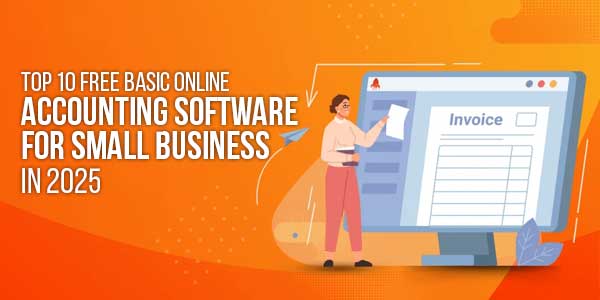
Table of Contents
Top 10 Free Basic Online Accounting Software For Small Business In 2025
Running a small business means juggling multiple responsibilities, and managing finances shouldn’t be a headache. Fortunately, in 2025, there are powerful free online accounting tools designed to simplify bookkeeping, invoicing, and expense tracking. Whether you’re a solopreneur or a growing startup, this guide explores the best free accounting software to keep your finances in check without breaking the bank.
Why Use Free Online Accounting Software?
Before diving into the list, let’s understand why cloud-based accounting software is a game-changer for small businesses:
- Cost-Effective: Zero upfront costs with essential features.
- Accessibility: Manage finances from anywhere, anytime.
- Automation: Reduces manual data entry and errors.
- Scalability: Upgrade to premium plans as your business grows.
“The right accounting software is like a financial GPS—it keeps your business on track and helps you avoid costly detours.” — Small Business Finance Expert
Top 10 Free Basic Online Accounting Software For 2025
1. Wave Financial
Best For: Freelancers and micro-businesses.
Wave offers a 100% free accounting suite with invoicing, expense tracking, and receipt scanning. Its user-friendly interface makes it ideal for beginners.
- Pros: Unlimited invoicing, bank connections, and multi-currency support.
- Cons: Payroll features are paid-only.
2. Zoho Books
Best For: Small businesses needing automation.
Zoho Books’ free plan supports up to 1,000 invoices per year and includes GST-compliant features, making it great for global small businesses.
3. ZipBooks
Best For: Service-based businesses.
ZipBooks provides smart invoicing and time tracking for free, with intuitive reporting tools to analyze cash flow.
4. GnuCash
Best For: Desktop users preferring open-source software.
Though not cloud-based, GnuCash is a powerful double-entry accounting tool for tech-savvy users who prioritize data privacy.
5. Brightbook
Best For: UK-based small businesses.
Brightbook’s free tier includes invoice creation, expense tracking, and VAT management, tailored for UK tax requirements.

6. Akaunting
Best For: Self-hosted accounting solutions.
Akaunting is a free, open-source platform with modules for invoicing, payments, and financial reporting—ideal for developers.
7. QuickBooks Online (Free Trial)
Best For: Businesses planning to scale.
While not entirely free, QuickBooks offers a 30-day free trial with robust features like mileage tracking and inventory management.
8. TrulySmall Invoices
Best For: Solopreneurs needing simple invoicing.
This tool focuses on creating and sending professional invoices quickly, with a minimalist design.
9. SlickPie
Best For: Automated data entry.
SlickPie’s free plan includes magic bot OCR for receipts and recurring invoices, saving hours of manual work.
10. CloudBooks
Best For: Startups with basic invoicing needs.
CloudBooks allows unlimited clients and invoices for free, with time-tracking integrations.
How To Choose The Right Free Accounting Software?
Consider these factors before selecting a tool:
- Business Size: Ensure the software supports your transaction volume.
- Features: Prioritize must-haves like invoicing or tax compliance.
- Ease of Use: Opt for intuitive interfaces if you’re not an accountant.
- Integration: Check compatibility with other tools (e.g., PayPal, CRM).
Limitations Of Free Accounting Software
While free tools are helpful, they often have restrictions:
- Limited customer support.
- Cap on invoices or transactions.
- No advanced features like payroll or inventory.
Final Thoughts
Choosing the best free accounting software depends on your business’s unique needs. For most small businesses, Wave and Zoho Books offer the best balance of features and usability. If you outgrow free plans, consider affordable upgrades to scale seamlessly.
Pro Tip: Test 2–3 tools with your workflow before committing. Many providers offer free trials or demos to help you decide.














Be the first to write a comment.